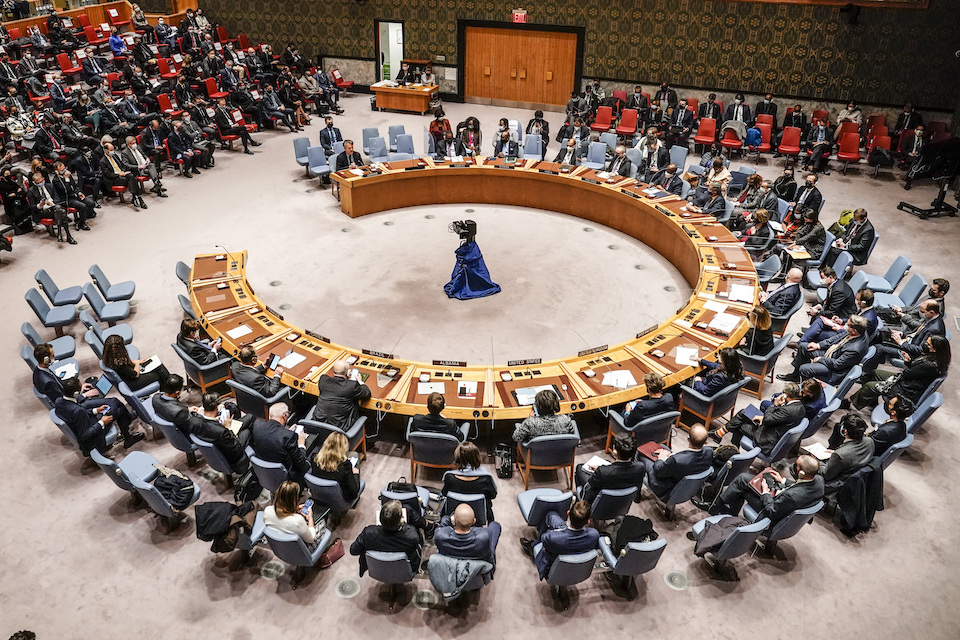Global food crisis and climate change compound the humanitarian situation in the Sahel
Statement by Fergus Eckersley, UK Chargé d’Affaires to the UN, at the Security Council briefing on West Africa and the Sahel

Thank you Mr President. Like others, we would like to congratulate you on assuming the Presidency this month and congratulate Albania for their excellent stewardship of the Council in June.
We welcome the Special Representative back to the chamber and thank him for his very helpful update. We also welcome the presence of the Chair of the Peacebuilding Commission and thank Ms Magagi for her briefing.
Mr President, as we have heard there have been some positive developments since we last met. The peaceful elections in the Gambia and Senegal are a welcome example of progress in West African democracy.
We remain very concerned by the political situation in Mali, Guinea and Burkina Faso. Although the recent progress made on election timelines in Mali and Burkina Faso is encouraging. Sustained progress towards the organisation of credible elections and a return to constitutional order is vital.
The UK encourages UNOWAS to continue to focus on democratic election processes across the region, in close coordination with ECOWAS and the AU. We also welcome the focus we heard today on boosting women’s participation in these processes.
Mr President, it is also clear from today’s briefing that the security situation in the region remains fragile. Progress in the Gulf of Guinea is welcome but the UK remains concerned by the deteriorating security situation in Nigeria, the central Sahel, the Lake Chad Basin, and by ongoing conflict, including involving extremist groups. The presence in the region of mercenary groups including Wagner is a dangerous, destabilising factor.
We encourage UNOWAS to focus on the practical steps the UN can take, in a coordinated fashion, to address the root causes of conflict, including through the implementation of the UN integrated strategy for the Sahel, as the Special Representative said.
The UK, for our part, is committed to working with Nigeria to respond through our Security and Defence partnership, and to supporting long-term stability in Mali and the wider Sahel including through our contribution to MINUSMA. Like others, I’d like to take this opportunity to offer our deep condolences for the deadly attack on Egyptian peacekeepers last week.
Mr President I also want to focus today on the humanitarian situation, given the worrying developments we’ve heard.
We are particularly concerned about the food security situation, especially where humanitarian access is restricted, and where the effects of the global food crisis and climate change compound the situation.
The UK is committed to improving the humanitarian situation including through providing over $200 million of development assistance across the Sahel between 2019 and 2021.
The UK calls on all actors to continue cooperation with UNOWAS at the national and regional levels to facilitate humanitarian access. We hope the SRSG can use his good offices role to work with all parties to conflict, and the wider UN system, to ensure safe and unimpeded access for humanitarian actors.
Finally, Mr President, we are concerned by the challenging human rights situation outlined in the latest report from the Secretary-General. We urge UNOWAS to continue to work with states to ensure accountability and improved compliance with international human rights standards.
Thank you.